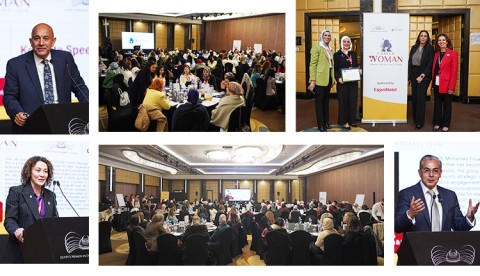ADNOC and Australian oil and gas firm Santos Limited have announced a strategic collaboration agreement (SCA) that paves the way for the potential development of a joint global carbon management platform. This platform aims to support the decarbonization efforts of customers across the Asia-Pacific region.
The agreement also highlights the companies’ commitment to advancing carbon capture and storage (CCS) technologies, which are crucial for accelerating the decarbonization of industries worldwide.
Additionally, ADNOC and Santos will explore the establishment of a carbon dioxide (CO2) shipping and transportation infrastructure network to facilitate the capture, shipping, and permanent storage of CO2 from heavy-emitting sectors.
“ADNOC continues to build on its pioneering role in safely capturing and permanently storing carbon dioxide as we accelerate toward net zero by 2045 and a target CCS capacity of 10 million metric tons per annum (mmtpa) by 2030,” said Musabbeh Al Kaabi, Executive Director of Low Carbon Solutions and International Growth at ADNOC.
“Through this partnership, ADNOC and Santos will work together, aiming to scale up the carbon management technologies of the future while leveraging our combined expertise and experience in safely transporting, capturing, and storing carbon to help markets in the Asia-Pacific decarbonize,” Al Kaabi noted.
This collaboration agreement follows ADNOC’s recent agreements to explore CCS and direct air capture (DAC) projects in the UAE and internationally. It aligns with the company’s broader carbon management strategy, which includes targeting a carbon capture capacity of 10 mtpa by 2030. This capacity is equivalent to removing over 2 million internal combustion vehicles from the road.
“Large scale-up of CCS is required to meet the world’s climate objectives, and companies like Santos and ADNOC have the technology, infrastructure, and knowledge to be able to deliver low-cost CCS and low-carbon energy competitively on a global scale,” said Alan Stuart-Grant, Energy Solutions Executive Vice President at Santos.
“There is an enormous opportunity for traditional energy suppliers like Australia and the UAE to be at the forefront of helping regional decarbonization through the utilization of our natural competitive advantages in carbon storage and energy supply chains. Through this collaboration, we will support the transition toward a low-carbon future that is both reliable and affordable,” he added.
ADNOC currently operates the Al Reyadah facility, which has the capacity to process 800,000 tons of CO2 per year. The company has recently announced significant carbon capture projects in the Middle East and North Africa region, including the Habshan facilities and the Hail and Ghasha offshore developments. These projects, along with ADNOC’s other commitments, bring its total investment in carbon capture capacity to nearly 4 mtpa.








